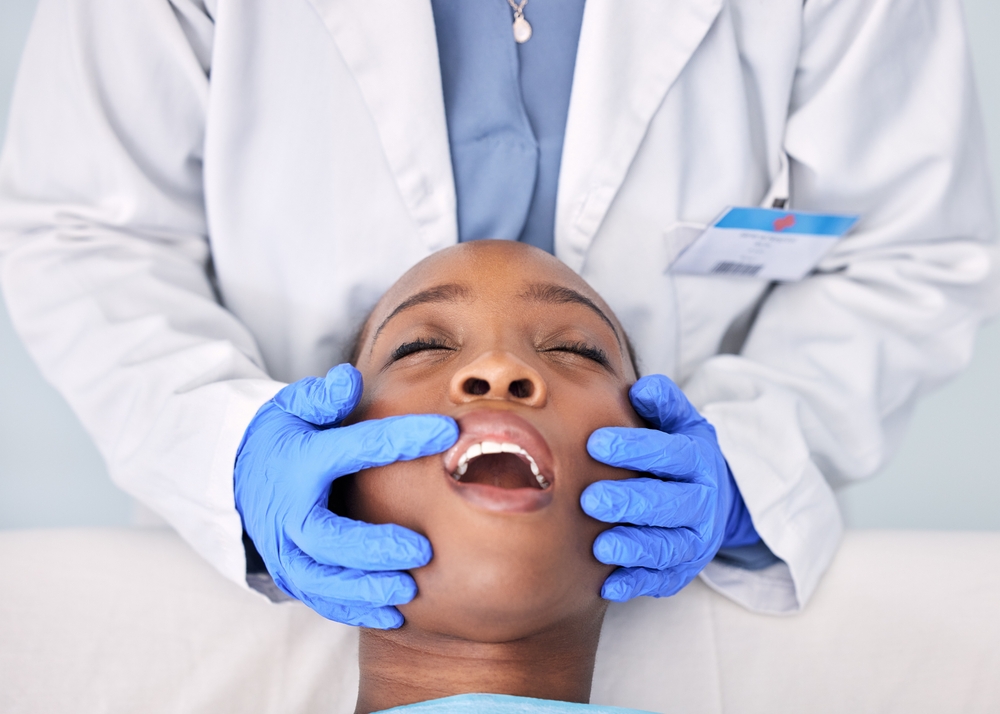Oral thrush, or oral candidiasis, is a common fungal infection that can significantly impact oral health and overall well-being. This article will delve into how oral thrush develops, its symptoms, treatment options, and preventive measures, emphasizing its effects on both your mouth and general health.
Understanding oral thrush
Oral thrush is caused by the overgrowth of the Candida fungus, specifically Candida albicans, in the mouth. While Candida is naturally present in the mouth and other body parts, its growth is typically kept in check by the immune system and other microorganisms. However, certain factors can disrupt this balance, leading to an infection.
Symptoms of oral thrush
The symptoms of oral thrush can vary from mild to severe, depending on the extent of the infection. Common symptoms include:
- White patches: These are the hallmark of oral thrush and can appear on the tongue, inner cheeks, gums, tonsils, or the roof of the mouth. These patches can be painful and may bleed if scraped.
- Redness and soreness: The infected areas may become red and sore, leading to discomfort, especially when eating or drinking.
- Loss of taste: Some individuals may experience a diminished sense of taste or an unpleasant taste in the mouth.
- Cracking and redness at the corners of the mouth: Also known as angular cheilitis, this condition often accompanies oral thrush.
- Difficulty swallowing: In severe cases, the infection can spread to the esophagus, causing pain and difficulty swallowing.
Causes and risk factors
Several factors can contribute to the development of oral thrush. Understanding these can help in both prevention and treatment.
Weakened immune system
A weakened immune system is one of the primary risk factors for oral thrush. Conditions such as HIV/AIDS, cancer, and diabetes can compromise the immune system, making it easier for Candida to overgrow.
Medications
Certain medications can also increase the risk of developing oral thrush. Antibiotics, for instance, can disrupt the natural balance of microorganisms in the mouth, allowing Candida to thrive. Whether inhaled or taken orally, steroid medications can also contribute to developing this infection.
Other risk factors
Other factors that can predispose individuals to oral thrush include wearing dentures, particularly if they are not cleaned properly, smoking, and having a dry mouth. Infants and older adults are also at higher risk due to their relatively weaker immune systems.
Impact on oral health
Oral thrush can have a profound impact on your oral health. The infection can cause significant discomfort and pain, making it difficult to perform everyday activities such as eating and speaking.
Oral hygiene complications
The presence of oral thrush can complicate oral hygiene practices. Brushing and flossing may become painful, leading to a decline in oral hygiene and potentially contributing to further dental issues such as cavities and gum disease.
Increased risk of other infections
The inflammation and open sores caused by oral thrush can increase the risk of other infections in the mouth. Bacteria can enter these sores, leading to secondary infections that can exacerbate oral health problems.
Effects on overall well-being
Beyond the immediate impact on oral health, oral thrush can also affect your overall well-being. The pain and discomfort associated with the infection can lead to difficulties in eating and drinking, which can result in poor nutrition and weight loss, especially in severe cases.
Psychological impact
Chronic or severe cases of oral thrush can also have a psychological impact. The visible symptoms and discomfort can lead to embarrassment and social anxiety, affecting one’s confidence and quality of life.
Systemic spread
In rare but serious cases, oral thrush can spread beyond the mouth and esophagus to other body parts, such as the lungs, liver, and skin. This is more likely to occur in individuals with severely compromised immune systems and can be life-threatening.
Treatment options
Fortunately, oral thrush is treatable with a variety of antifungal medications. These treatments aim to reduce Candida overgrowth and alleviate symptoms.
Antifungal medications
Antifungal medications are the cornerstone of treatment for oral thrush. These can be administered in various forms, including lozenges, tablets, or liquid suspensions swishing in the mouth before swallowing. Commonly prescribed antifungal medications include nystatin, clotrimazole, and fluconazole.
Home remedies and lifestyle changes
In addition to antifungal medications, certain home remedies and lifestyle changes can help manage and prevent oral thrush. These include:
- Good oral hygiene: Brushing and flossing regularly, and cleaning dentures thoroughly, can help maintain oral health and prevent the overgrowth of Candida.
- Dietary changes: Reducing sugar intake can help prevent the growth of Candida, as sugar can promote fungal growth.
- Probiotics: Taking probiotic supplements or consuming foods rich in probiotics, such as yogurt, can help maintain a healthy balance of microorganisms in the mouth.
Preventive measures
Preventing oral thrush involves addressing the underlying risk factors and maintaining good oral hygiene.
Regular dental check-ups
Regular dental check-ups can help detect and treat oral thrush early, preventing complications. Your dentist can guide you on maintaining good oral hygiene and recommend preventive measures tailored to your needs.
Managing underlying conditions
Managing underlying health conditions that weaken the immune system, such as diabetes or HIV/AIDS, is crucial in preventing oral thrush. This involves following your healthcare provider’s recommendations and taking medications as prescribed.
Avoiding risk factors
Avoiding known risk factors, such as smoking and excessive antibiotic use, can also reduce the risk of developing oral thrush. If you use inhaled steroids, rinsing your mouth after use can help prevent the growth of Candida.
Regular dental checkups, good oral hygiene, and addressing underlying health conditions are key to maintaining a healthy mouth and preventing oral thrush from affecting your quality of life. If you suspect you have oral thrush, seek medical advice promptly to ensure effective treatment and avoid complications.















